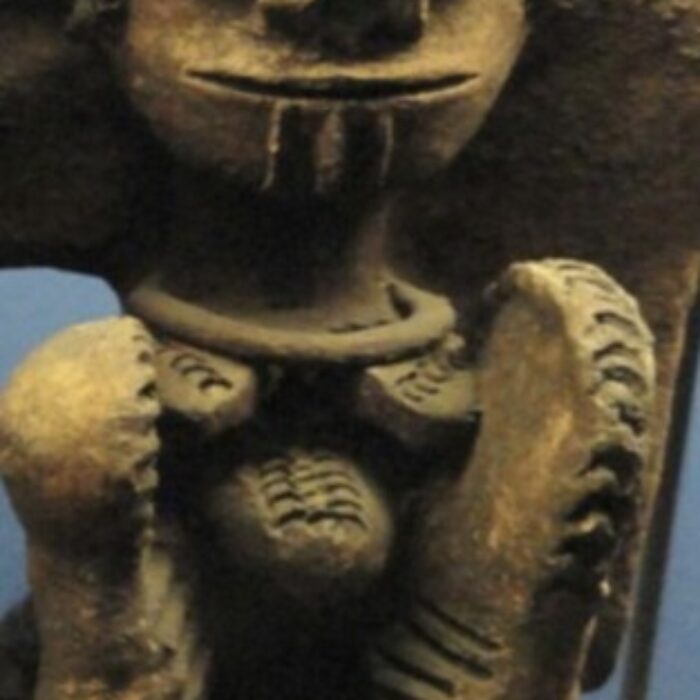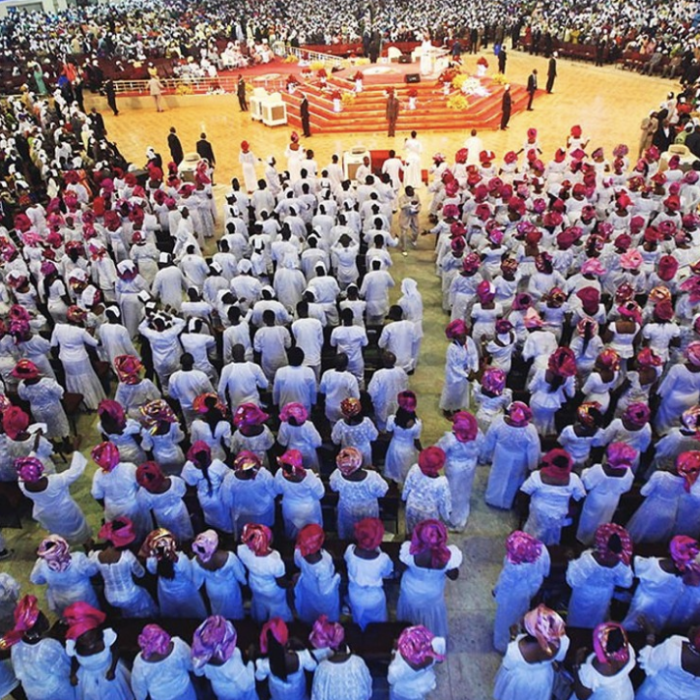By Nnaoke Ufere, PhD
Dear Brothers and Sisters in Christ,
Merry Christmas!
As we celebrate the birth of our Lord Jesus Christ, this season of joy and renewal calls us to prayerfully reflect on and confront the pressing challenges facing Christianity in Nigeria, as highlighted in this epistle.
These challenges not only risk distorting the gospel and leading believers astray but also hinder the spiritual growth and mission of the Body of Christ in Nigeria. By addressing these challenges, we can restore the Church’s witness, strengthen its fellowship and ministry.
As Church leaders, may we face these challenges with love, courage, temperance, and the unfailing guidance of the Holy Spirit.
I write as an ordained Elder of the Presbyterian Church USA and a devoted Sunday School teacher for over 30 years. My roots in the faith run deep, nurtured by my upbringing in Nigeria, where I was both raised and educated in the Christian tradition.
These experiences shaped a life defined by unwavering faith and a commitment to ministry, decades of which I have spent striving to live out the teachings of Christ through mission work across the country.
It is from this place of deep commitment that I feel compelled to sound an urgent alarm: Christianity in Nigeria stands at a critical crossroads, its very survival hanging in the balance.
Once a beacon of hope and a driving force for spiritual growth, social justice, moral leadership, and societal transformation, Nigerian Christianity has now fallen under siege—hijacked by greed, exploitation, manipulation, the cult of personality, and a perilous entanglement with political corruption through unholy alliances with unscrupulous politicians.
It is utterly devastating that the Church—the sacred Body of Christ—has been defiled by so-called leaders who masquerade as shepherds of the flock but are, in reality, ravenous wolves draped in the guise of righteousness. This betrayal cuts to the core, a painful reminder of how far some have strayed from the divine calling entrusted to them.
The Apostle Paul’s warning in 2 Corinthians 11:13-15 rings eerily true today: “For such people are false apostles, deceitful workers, masquerading as apostles of Christ. And no wonder, for Satan himself masquerades as an angel of light. It is not surprising, then, if his servants also masquerade as servants of righteousness. Their end will be what their actions deserve.”
This scripture captures the tragic state of Nigerian Christianity and its leadership. Too many of its leaders, instead of embodying Christ’s humility and selflessness, have become deceivers and scammers, exploiting the trust of their congregants for personal gain.
Under their influence, the church’s sacred mission—to nurture souls, uplift the oppressed, and shine as a bright light in our nation’s darkness—has been eclipsed by the relentless pursuit of material wealth, power, social status, and worldly recognition.
In many parts of our society today, churches have transformed into big businesses, operating less as houses of worship and more as empires of profit. Prosperity theology, a dangerous distortion of the gospel, has taken root.
It teaches millions that financial prosperity is the ultimate proof of God’s favor, replacing the humility, sacrifice, and service exemplified by Jesus Christ with a message rooted in greed, excess, and decadence. In this warped narrative, spiritual growth and true discipleship have been sacrificed on the altar of wealth accumulation and showmanship.
“You are the salt of the earth. But if the salt loses its saltiness, how can it be made salty again? It is no longer good for anything, except to be thrown out and trampled underfoot.” These prophetic words from Matthew 5:13, part of Jesus’ Sermon on the Mount, ring with piercing relevance today, exposing the decay within Nigerian Christianity and the hypocrisy of leaders who masquerade as servants of God.
In many ways, Jesus’ Sermon on the Mount seem to foreshadow the condition of the Nigerian Church and its leaders, who, by abandoning their moral and spiritual responsibilities, risk losing their relevance and their ability to inspire and guide the nation. As the Church has failed to fulfill its purpose, it has faced the consequences of being discarded by the very society it was meant to serve.
The consequences have been profound and far-reaching. The church’s moral authority, once a cornerstone of Nigerian society during my youth, has steadily crumbled. Its reluctance to speak truth to power, confront injustice, and stand with the oppressed has created a deep spiritual void. The youth—the very foundation upon which the future of the Church rests—have abandoned it in droves, disillusioned and disheartened.
One must question if God even listens to the prayers of a Church that has lost its way, as countless pleas go unanswered in a nation drowning in suffering, despite churches crowding every street corner. This is a damning indictment of a spiritual institution that has become a shadow of its divine calling.
This situation raises a deeper question: How can Church leaders, who have prioritized money, popularity, and power over the salvation of souls, and who are complicit in corrupting the faith, still claim fidelity to the teachings of Jesus Christ and to serve as the moral compass of the nation?
How Nigerian Church leaders address this salient question and the nine challenges presented below will determine the future of Christianity in the country. If the Church does not change—if its leaders and followers do not return to the true teachings of Christ—then it risks losing its saltiness, its soul and its relevance. The path forward is clear: We must reclaim the essence of our Christian faith.
The Nine Challenges the Church Must Address to Secure Its Future
Allow me to outline nine critical challenges that have brought Christianity in Nigeria to the brink of a profound crisis. My hope is that Church leaders will be inspired to pursue spiritual renewal and embrace bold, transformative reforms to restore their moral authority and renew Christianity’s relevance in our society.
1. A Prosperity Gospel of Greed and Exploitation
At the core of Nigerian Christianity’s moral decline is the insidious rise of the prosperity gospel—a doctrine championed by self-serving charlatans masquerading as spiritual leaders.
This toxic theology equates material wealth with divine favor, preying on the desperation of Nigeria’s impoverished masses. These so-called pastors peddle false hope, relentlessly exploiting the poor with demands for endless tithes, all in exchange for empty promises of prosperity, success, and breakthroughs that rarely materialize. The underlying message is cruelly clear: poverty reflects weak faith, while wealth is the ultimate proof of God’s blessing.
This gospel of greed has corrupted not only the church but the very fabric of Nigerian society. It normalizes avarice, fueling a culture of “get-rich-quick” schemes that erode integrity, hard work, and social responsibility.
By promoting shortcuts to prosperity, pastors become complicit in perpetuating the endemic corruption that plagues our nation. Meanwhile, the true essence of Christianity—humility, compassion, and service to others—is abandoned in favor of relentless self-enrichment and self-importance.
Isn’t it ironic that when bishops or Church leaders are kidnapped for ransom, the Church blames societal decay? Could it be, however, that their prosperity preaching is contributing to this very decay?
2. Entanglement With Political Corruption
Many Church leaders have abandoned their prophetic role as voices against injustice and societal decay, choosing instead to align themselves with corrupt politicians in exchange for financial or political benefits.
This unholy alliance has turned pulpits into propaganda tools, weakening the Church’s prophetic role as a moral guide. Instead of holding leaders accountable, these pastors preach compliance, urging congregants to pray for politicians whose actions perpetuate suffering and oppression. Such complicity sustains the status quo and betrays the very essence of Christ’s ministry.
Influential pastors like Bishop Sunday Garuba, Rev. Fr. Ejike Mbaka, and over 1,000 others who endorsed Buhari, along with Pastor Enoch Adeboye supporting President Tinubu, claimed with divine certainty that Nigeria would prosper under their leadership. Instead, Nigerians are starving and dying due to the failed policies of both administrations.
These Church leaders have clearly exploited their pulpits to legitimize political leaders who bear responsibility for the immense suffering of millions of Nigerians. Such false prophesizing not only erodes the moral authority of religious institutions but also deepens public disillusionment, undermining trust in both spiritual and political leadership.
3. Pastors as Demigods
Many observers have grown deeply alarmed by the troubling trend of prominent pastors elevating themselves to near-divine status. These pastors demand unquestioning loyalty, presenting themselves as the sole intermediaries between God and the people. Their words are treated as infallible, their actions beyond reproach, fostering a dangerous culture of idolatry and a dark cult of personality.
The troubling trend of Nigerian pastors claiming direct personal encounters with God in His fullness is exemplified by statements like Pastor Enoch Adeboye’s claim that he literally “shared breakfast and drank tea with God Almighty.”
These assertions directly contradict Scripture, which teaches that no one can see God in His fullness. As 1 Timothy 6:16 declares, God “alone is immortal and who lives in unapproachable light, whom no one has seen or can see.”
Even biblical figures such as Moses and Isaiah experienced mediated encounters with God through visions or symbolic manifestations (Exodus 3:2; Isaiah 6:1-4).
Such claims often serve to elevate personal authority and manipulate followers, aligning with the warnings in Jeremiah 23:16, where false prophets speak visions from their own minds, and 2 Corinthians 11:13-15, which cautions against deceitful workers masquerading as apostles of Christ.
These practices distort the gospel, risk leading believers astray, and must be judged by their fruits, as instructed in Matthew 7:16. Such sensationalism undermines the humility at the heart of Christianity, redirecting the focus from God to human figures.
4. The Business of Fake Miracles
The proliferation of fake miracles and false prophecies is one of the most damning aspects of Nigerian Christianity. Staged healings and bogus resurrections are orchestrated to attract followers, boost offerings, and build personal empires, undermining the faith’s credibility.
Late Pastor T.B. Joshua faced serious allegations of fabricating miracles, with reports of paid participants, as investigated by the BBC. Similarly, Chukwuemeka Odumeje’s theatrical performances, including claims of selective healing and inflicting death on opponents, trivialize Christianity and verge on exploitation. Prophet Jeremiah Fufeyin of Christ Mercyland Deliverance Ministry profits from selling “healing potions” while making dubious miracle claims.
Unlike Jesus’ compassionate and humble miracles, which glorified God and transformed lives, these exploitative practices manipulate desperate believers and reduce spiritual truths to a commercial spectacle.
5. False Prophecies and Political Endorsements
Many Nigerian pastors have made bold political prophecies that failed, yet loyal followers overlook these deceptions.
During Buhari’s campaigns, pastors like Prophet Emmanuel Omale and Rev. Fr. Ejike Mbaka declared him divinely chosen to transform Nigeria. Instead, his tenure brought worsening hardship and insecurity, exposing these claims as baseless. Similarly, Pastor Tunde Bakare’s claim of being divinely ordained to succeed Buhari as Nigeria’s 16th President proved false.
More recently, pastors like Reverend David Oyediran and Prophet Odedoyin Ezekiel hailed Tinubu as God’s anointed leader. Yet, within two years, Nigeria faces deepening poverty and disunity, contradicting their prophecies. These pastors now urge prayers for Tinubu, as if to salvage their failed proclamations, leaving many to question whether these prophecies reflect God’s will or political agendas.
Scripture warns against false prophets in Jeremiah 23:16, where God says, “Do not listen to what the prophets are prophesying to you; they fill you with false hopes. They speak visions from their own minds, not from the mouth of the Lord.”
6. The Weaponization of Scripture
The Bible, meant to inspire justice and compassion, has been distorted by Nigerian pastors to justify their self-serving agendas. Selectively amplifying verses that glorify wealth, legitimize corrupt politicians, and demand blind obedience, they manipulate scripture to benefit themselves and their political allies, ignoring passages condemning greed and inequality.
This misuse has turned the Church into a tool of political manipulation, silencing dissent and justifying lavish lifestyles while urging followers to accept suffering as God’s will. In a nation yearning for moral leadership, the Scriptures have been weaponized to perpetuate ignorance, inequality, and suffering, undermining the Church’s credibility and betraying Christ’s teachings.
7. The Church as Brothel
The moral fabric of Nigerian Christianity has been gravely undermined by prominent clergy engaging in sexual misconduct, desecrating the sanctity of the Church. Abusing their spiritual authority, these individuals commit adultery, sexual assault, and even the horrific abuse of minors entrusted to their care.
High-profile cases highlight this moral rot: Pastor Joshua Iginla and Bishop Francis Wale Oke confessed to long-running extramarital affairs; the late Prophet T.B. Joshua faced posthumous accusations of systematic rape, forced abortions, and abuse spanning years. Bishop Feyi Daniels was sentenced to life imprisonment for raping a co-pastor—a shocking betrayal of trust.
These cases, and many others, are not isolated but symptoms of a deeper crisis—exploitation cloaked in spiritual authority. Such acts have desecrated the Church, eroded trust, and shattered the faith of believers. Instead of being sanctuaries of holiness and healing, some churches have become arenas of predation and hypocrisy.
8. The Youth Has Abandoned the Church
The Church’s failure to address the spiritual and practical needs of its congregants, prioritizing wealth and power, has driven young Nigerians away from Christianity. Disillusioned by scandals of greed, fornication, exploitation, and complicity with corrupt politicians, many now view the Church as hypocritical and irrelevant.
Surveys reveal a growing mistrust of religious institutions, with some seeing Christianity as a scam. Facing unemployment, poverty, and insecurity, young Nigerians no longer find the Church relevant to their struggles. This erosion of faith in a nation with the world’s largest youth population threatens deeper social fragmentation.
Without urgent reform—embracing humility, service, and truth—the Church risks extinction, jeopardizing both its role of nurturing future moral leaders and building Nigeria’s moral foundation.
9. The Ineptitude of PFN and CAN as Christianity Watchdogs
The Pentecostal Fellowship of Nigeria (PFN) and the Christian Association of Nigeria (CAN) have failed as guardians of the faith, choosing silence and complicity over accountability.
They have failed to provide adequate guiderails and sanctions as malfeasance and exploitation run rampant within their ranks, allowing false doctrines and abusive practices to thrive. When they speak, they lack authority, having long forfeited their moral standing.
Rather than addressing the corruption within the church, PFN and CAN focus on deflecting blame onto other religions or creating false equivalencies. This failure to confront exploitative pastors and corrupt Church leaders has only deepened the moral decay and further eroded the church’s credibility.
Reclaiming integrity requires reforming or replacing these institutions with leaders who value truth, accountability, and the spiritual well-being of the people over institutional preservation and political favor.
Conclusion
My brethren, all hope is not lost. Amid the decay, a faithful remnant remains—true disciples of Christ who quietly live out the gospel by serving the poor, advocating for justice, and spreading love through action.
This remnant must rise to reclaim the Church’s mission and restore its purpose. As we celebrate Christmas, let us address the challenges facing Christianity in Nigeria and return to its essence—a faith rooted in love, humility, sacrifice, and justice.
The Church must reject greed, corruption, and vanity, embracing Christ’s teachings through compassion, integrity, and fearless advocacy for the oppressed. Without change, Christianity risks irrelevance and extinction. The choice is clear: reform or perish.
The future of Nigerian Christianity—and the nation’s moral and spiritual health—depends on the Church reclaiming its prophetic voice and becoming a beacon of truth, justice, and hope once again.
Yours in Christ
Nnaoke Ufere






This article rightly calls for urgent introspection and action within Nigerian Christianity. While the challenges are daunting, this critical juncture offers an opportunity for renewal and reformation, restoring the Church’s role as a moral compass and catalyst for societal transformation.